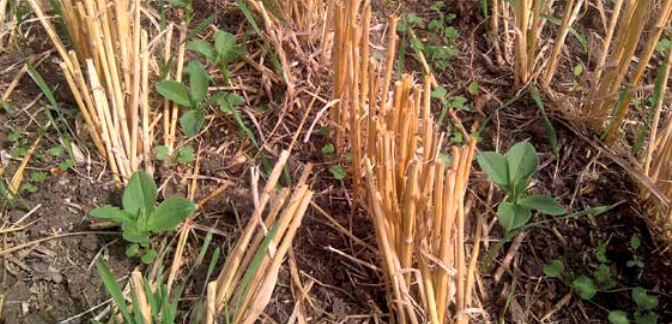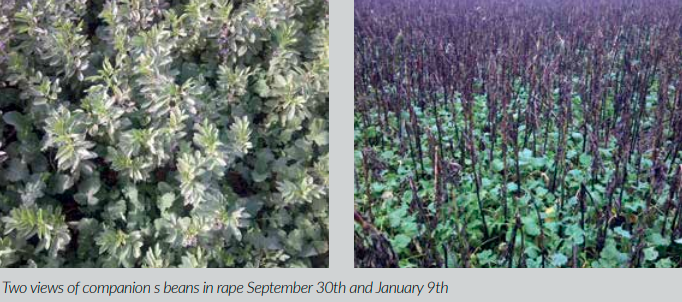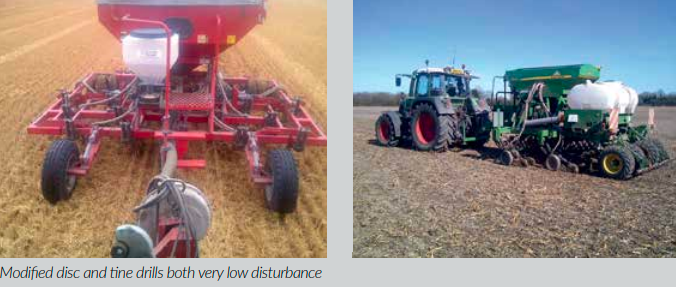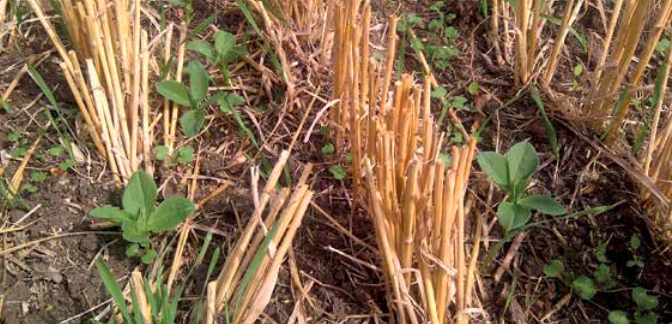DAVID WHITE – HAWK MILL FARMS
Farming 160ha of combinable crops on light “boys” land over chalk between Cambridge and Newmarket, I’ve just had my third direct drilled harvest. I’m 100% combinable having been a sugar beet grower since the days of hand hoeing as well as offering a drilling and harvesting service with a 6 row tanker in the past, I have since stopped growing beet when I wanted to start direct drilling. All crops types are grown for premium markets and are stored in Camgrain central storage which makes having a rotation of 6 or 7 crops and different varieties very easy.
Rumours of my retirement are very much exaggerated
There comes a time in life where the pressure of being either at work or on duty (ie on stand-by in case the wind should drop to allow some spraying to be completed or it being dry enough to drill or harvest a crop) most days of the week for most of the year becomes tiresome.

An opportunity arose to reduce my contracting workload, the distance I travelled and the area I farm. The need to be “on duty” so often came along, so I took it thinking this would be staged or semi-retirement, something farmers are very bad at! This coincided with an interest in a different type of farming being stimulated through discussion on Twitter and The Farming Forum, (I won’t name the culprits as where there is blame there is a claim!) which also requires less “intensity” in many forms. I also have other business interests which bring diversity to my business life through selling Trimble GPS correction signals for precision farming www. rtkfarming.co.uk and the other being Vice Chairman of Camgrain Stores, both of which make farming a less solitary profession and life very much more interesting. So, back to this different type of farming.
Some of the local walkers that use the footpaths through Hawk Mill clearly had heard mention, probably down the pub, of “retirement” and noticing that my fields appear to be growing what are in their eyes weeds thought I had thrown in the towel as the farm looked as if it had gone to pot. “Farming Ugly” as the Americans call it is something that takes some adjusting to as traditionally the best farms have been the smart tidy farms, but I quickly realised that beauty is in fact soil deep.

The journey to a new way of farming.
Conservation Farming, it’s like going back to school and questioning and unlearning most of what I thought essential to be a successful arable farmer, but am now largely not bothered about.
• Inversion of “trash” to stop disease carryover; trash is good
• Deep loosening, especially tramlines so crops can root well; none done
• Annual dressings of P and K to maintain fertility; very little now purchased
• Short stubble for easier management; long is better
• Fine seed beds achieved through intensive mechanical soil manipulation; none done
• Multiple seed dressings to stop disease or early insect attack; not used
• No green bridge to prevent disease and insect carryover
• Wide tramlines so no green grains at harvest; no coulters blocked off as green living tramlines stay drier
• Pre-em herbicides and active stacking essential; use now reduced
• Autumn insecticides essential; reduced through later drilling and companion cropping
A farming career born of ploughing, subsoiling one year in four to 18” deep, discing, harrowing, rolling, harrowing again, rolling again all went out of the window the minute I got my head around the fact that roots and worms do all that for you 24 hrs/day for very little effort and expense. Instead of increasing the size of tractors purchased each change in the traditional way of the agri rat-race I find the smallest on the farm is more than enough for most jobs.

Instead of a tine and disc machine, a plough, a press, another press, a disc-roller and a harrow for every soil condition I now have two drills and some infrequently used rolls doing all the establishment. Homework consisted of reading catalogues of seeds of plants that I’d mostly not heard of, never mind grown before such as Phacelia, Vetch, Black Oats, Buckwheat, Crimson Clover, Forage Rye, Tillage and Oil Radish, White Mustard and Sunflower. What type of root system do they have, how do they influence soil biology? So the result of the changes has been to reduce the fixed costs of running a farm through requiring smaller tractors, less machinery, lower labour and tractor hours, reduced consumption of fuel and wearing parts but with the requirement of increased level of management skills and understanding of how nature works. Trying to work with it not work against or change what naturally happens is a new mindset you have to want to buy into to make Conservation Farming work.
Machinery inventory, listed by importance
• Polaris Ranger (used daily)
• Spade x 2 Fork x 1 (kinder on worms)
• Fendt 716 and 415 with Trimble RTK Auto-Steer
• S/H Horsch CO4 with Dutch openers and Bullock Tillage small seed hopper (soon to be 2)
• John Deere 3mt 750a bought new with Techneat small seed hopper
• Bateman RB25 24mt with full Trimble control
• JCB Loadall 530-70
• 6 of 1.25t Tote bins (extremely useful)
• KRM Bogballe spreader
• Grain and seed trailers
• 9mt Cousins rolls
• Note, Combining done on contract by a neighbour
Three years in how’s it been?
Fascinating, the farm is now a more interesting place, it supports more wildlife and with a more diverse rotation relies less on artificial inputs and feels much more sustainable. Whilst yields of spring beans and oats can’t be compared BCF (before Conservation Farming) as they weren’t grown. The yields of winter wheat and spring barley have been maintained but are still influenced by occasional partial flooding in a wet spring or over 30-degree temperatures in June. Not much we can do about that, and oil seed rape now grown again has increased.
Reduced cultivation and direct drilling have quickly changed the look, feel and structure of my soils which I’m hoping will make this light land yield potential be more resilient in a dry year with a more reliable margin through reduced costs. There is no question that the soil is now better able to resist compaction from machine trafficking due to higher organic matter levels, like driving on a spring mattress. Tramlines despite being perinatally placed with RTK are level not rutted and the ground carries harvest equipment very well. Fertilizer indices have remained stable at 2/2+ despite not having an annual dressing of P and K. The top 3” of soil have changed colour a are more friable leading to easier slot closure with a disc drill if using it in the right conditions, something we all get excited about in the early years of direct drilling.
Eureka moments
Visiting Agrii Stow Longa site and seeing a difference in soil comparing a cultivation plot and a cover crop plot 50 yards away that was like moving to a different county! Seeing pictures on Twitter and The Farming Forum of the variety of cover and companion crops in flower being grown in the UK! A social media contributor saying that if this field has just grown a 10t/ha wheat crop and I don’t do anything to change it (mechanical interference) why won’t it do it again! Attending a BASE UK arraigned talk arranged by Frederic Thomas @ FthomasTcs and subsequent visit to his and other farms in France which highlighted the value of a flexible rotation and companion cropping with rape. An Irish direct drilling farmer in America describing how the “fines” get washed down in cultivated soil upsetting the natural structure. Buying a spade and starting to open my eyes to what goes on underground.
Farm trials past and Ongoing
My future aims are to keep trying new things and on-farm trials, as I thought when I started out drilling wheat with the JD 750a for the first time in four foot high mustard, if this doesn’t work I can always plough it in and stick in some spring barley, truth is I’d now spray it off not plough but pushing the boundaries and making mistakes is the only way to learn. I also want to reduce reliance on Glyphosate, reduce nitrogen rates and maintain yields and ultimately to become an insecticide free farm, only trying on one field at present that is my target.

